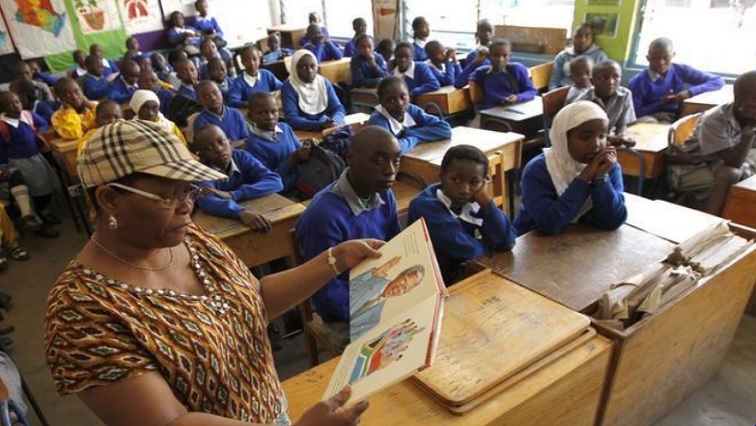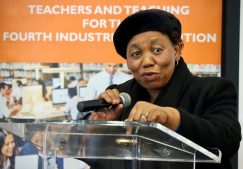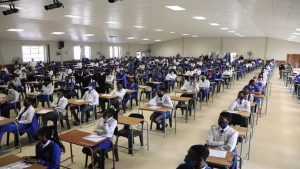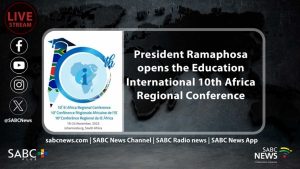South Africa will commemorate the 16 June 1976 Soweto youth uprising today. It has been 47 years since hundreds of young people were killed by the apartheid government police for protesting against the use of Afrikaans as a medium of instruction in secondary schools.
This year the day is celebrated under the theme “Accelerating youth economic emancipation for a sustainable future”. The state of SA’s basic education has been a cause for concern for some experts. Senior Attorney at Equal Education Law Centre Tarryn Cooper-Bell answers questions relating to some issues in the sector.
What are some of the key challenges found in SA’s education sector, particularly in basic education?
There are many challenges that are negatively impacting the basic education sector but what is clear is that on a daily basis learners are experiencing school environments that are denying them their right to basic education. Learners are being faced with schools that do not have access to basic services such as water, and sanitation; or basic classroom infrastructure such as desks, books, or chairs. Overcrowding in schools is also a systemic issue that government has failed to address, and alarmingly with the recent release of the PIRLS report it is clear that all of these challenges continue to negatively impact the learning outcomes of children who the government is failing to support.
One of the issues that have been discussed recently is that 81% of Grade 4 learners cannot read for meaning, what does this say about SA’s schools?
The reading crisis is part of a deeper problem that has been developing in South Africa over the past 20 years. South African schools are struggling with overcrowded classrooms, a lack of textbooks, and no school libraries. All of these challenges contribute to a situation where learners don’t have the basic skills needed to succeed. Despite this, hope is not lost. With holistic support, and targeted investment in early intervention programmes such as ECD, learning losses can be overcome. Children can indeed succeed, but it will take communities, schools, and the government working together to ensure that this occurs.
Government continues to allocate a lion’s share of the budget to education; however, the outcomes do not reflect the level of investment, what is the problem here?
Money is being spent on issues that do not necessarily address the deep systemic issues that are prevalent within our education system.
In addition to this, we see a large-scale lack of accountability in relation to education spending. For example, we are aware that the Eastern Cape Department of Education has an infrastructure crisis in their province, with schools lacking basic necessary infrastructure such as toilets, water, safe classrooms, fencing, and libraries; however R100 million of the Eastern Cape Education Infrastructure Grant was returned to treasury at the end of the financial year due to underspending – this is a systemic trend for the Eastern Cape yet it is being allowed to continue.
Despite education continuing to be one of government’s largest spending items, basic education is annually getting an increasingly smaller share of government’s overall spending. This therefore means that, when considering the rate of inflation, in real terms education is getting less money every year to meet more and more challenges.
What should government actually be spending on, in the education system?
The concept of improved spending on education and how our government can improve is an extremely complex question, but what it does require up front is political will and the desire to be and do better. Many of the learning losses experienced by children start before they even reach school. Early learning is critical for the development of skills and support needed for children to excel later in life. Historically there has been a continuing failure by government to invest in ECD, this needs to change. Increased, pro-poor and inclusive funding for early childhood development programmes needs to prioritised.
In addition to ECD investment, accountability mechanisms for holding provincial departments, contractors, and education stakeholders accountable for underspending, contract breaches, and wasteful expenditure need to be strengthened and properly implemented.
There is a high rate of youth unemployment in South Africa, is this also an effect of the education that they receive?
The high rate of youth unemployment has many contributing factors. It is widely known that education is important in shaping society and as such failures within education systems certainly contributes to high youth unemployment. A learner cannot be expected to learn and excel in an environment that is not conducive to learning. It is therefore vital that learners and their learning environments are adequately and holistically supported.
What should government be doing to address the challenges in the education sector?
Firstly, government must meet their legal obligations. There are a number of areas in which the government has simply failed to adhere to laws requiring them to provide for learners and schools. An example of this is the Norms and Standards for School Infrastructure which contains deadlines for the provisioning of necessary infrastructure to schools. Every deadline within that legislation has been ignored and missed, with learners suffering the brunt of the DBE’s blatant disregard of their legal duty. As of today, learners are still being forced to endure the indignity of utilising plain pit latrines at schools because government has ignored the deadline to provide adequate and safe sanitation at all schools across the country.
Secondly, government, including National Treasury, the DBE, the provincial education departments, and parliament needs to ensure proper investment in ECD to ensure that children are support and developed from a young age.
The national Youth Day celebrations will be taking place at the Dr Petrus Rantlai Molemela Stadium, in the Free State.






